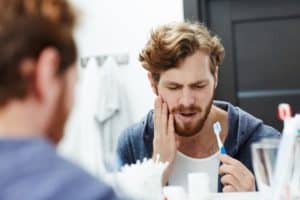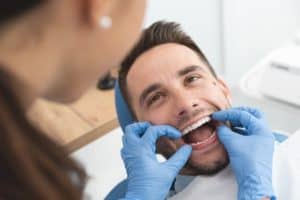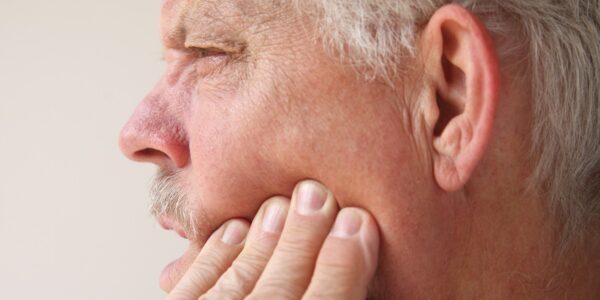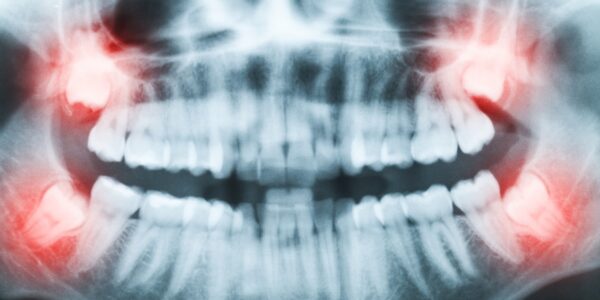
Nearly everyone’s jaw occasionally produces an audible clicking, grating or popping noise when opening wide to take a big bite or yawn. This is usually nothing to be concerned about, and often resolves on its own with some light jaw rest.
If your jaw clicks or pops regularly, and the noises are accompanied by pain or other symptoms such as irregular jaw motion, facial swelling or a jaw that feels “locked” or “stuck” in an open or closed position, that is another story.
Dr. Ivan & Allan Stein at Headache & TMJ Center of New Jersey caution that the repeated jaw clicking, popping or irregular motion could be your body trying to signal that your jaw is overextended. It is a good idea to consult with our team to determine what is causing the problem.
Why Is Your Jaw Clicking or Popping?
The most plausible explanation for the clicking or popping noises is that you have a problem with your temporomandibular joint (TMJ), the ball-and-socket joint that connects your lower jaw to your skull. The joint moves in different directions to provide the range of motion you need to eat, speak, swallow and yawn. When the TMJ does not function properly, it can cause the noises you hear as well as abnormal jaw motion.
The clicking or popping noise you hear could be your lower jaw hyperextending as you open your mouth wide (such as when you yawn). Or, if you hear an audible noise when you close your mouth, the disc between the bones of your TMJ might have slipped out of its proper position. A subsequent click or pop when opening your mouth again suggests the disc has repositioned itself.
Several factors can lead to TMJ dysfunction (TMD). Perhaps a traumatic blow to the jawbone injured the joint. Or maybe arthritis caused the cartilage cushioning the bones of the TMJ to degenerate. Another common cause of TMD is a misalignment of the bite — meaning your upper and lower teeth do not properly meet together when you bite down.
TMD is a tricky condition to diagnose, but with Dr. Ivan & Allan Stein’s knowledge and expertise, they can confirm a diagnosis and identify the potential underlying cause. Most of our patients respond very well to their TMD treatment.
Treatment Options
Drs. Stein will work closely with you to find an approach that reduces or alleviates your symptoms. They generally feel that “less is often best” when it comes to treating TMJ problems. What that means is that our team will start with the simplest, least invasive techniques before moving on to more invasive treatments.

For example, Drs. Stein may recommend you give your jaw some rest by eating softer foods and avoiding foods that have caused clicking or popping noises or irregular jaw motion in the past. This usually includes crunchy, chewy or tough foods. Our team also suggests refraining from activities such as singing, yelling or chewing gum or candy, which are known to aggravate the jaw. Alternating heat and cold therapy and practicing relaxation techniques may soothe an overextended jaw joint.
If these techniques do not help, Drs. Stein might explore other options, such as dental or orthodontic work to address misalignment of your teeth, or a night guard to protect your teeth from the forces of nighttime grinding or clenching. Once the root cause has been addressed, your symptoms should improve or resolve.
Contact Us Today
If you are ready to find a solution to jaw popping and clicking noises or irregular jaw motion, Headache & TMJ Center of New Jersey can help. Please contact our TMJ specialists today to request a consultation and discuss your symptoms.




